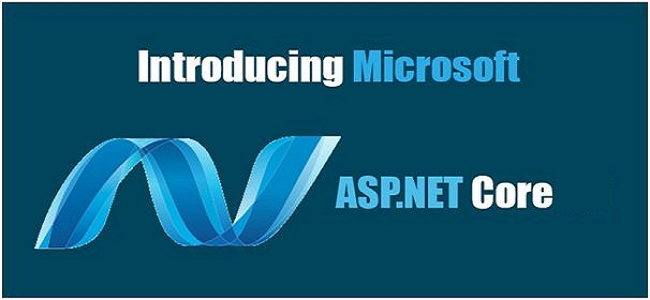Asp.net core is a critical redesign of asp.net. In this tutorial blog, explain the new concepts in asp.net core and tell how they are helpful for developing modern web apps. Let’s get started from the basics.
Asp.net core is a latest open-source and cross-platform framework used by programmers to design modern cloud based applications like web apps, mobile backends, and IoT apps. Users are able to run asp.net core apps on .net core or on the .net framework. It was intended to bring optimized development framework for cloud based apps and for the apps that run on-premises.
Asp.net Core has modular components with least overhead, which means developers retain flexibility while working on the solutions. They can develop and run their asp.net Core apps cross platform on Linux, Windows, and Mac. Thing that people should know is asp.net core is open source and available at GitHub.
Reasons to build asp.net core
Since asp.net core includes numerous architectural changes that result in a much modular and leaner framework. It is now based on NuGet packages instead of system.web.dll. This lets developers to optimize their app to include the NuGet packages they need. The major advantages of a smaller app surface area cover certain things like reduced servicing, strict security, enhanced performance, and decreased costs in a pay-for-what-you-use model.
Major gains from the enhancements of asp.net core are-
- Developers get a unified story to design web UI and APIs.
- Integration of modern client-side frameworks along with workflows development now possible.
- Developers get a cloud based configuration system.
- Developers get a built-in dependency injection.
- Developers get a new lightweight and modular HTTP request pipeline.
- Developers get ability to self-host in their process or host on IIS.
- It ships whole as NuGet packages
- Its new tooling make modern web development simple
- Developers are able to build and run cross platform asp.net apps on Mac, Linux, and Windows.
- Asp.net Core is open source and community focused.
Explain the component Services in asp.net core
A service is a component intended by experts for common consumption in an application. Dependency injection made services available. Asp.net Core has a simple built-in inversion of IOC container supporting constructor injection by default. Developers can easily replace it with their IOC container of choice. Dependency Injection also makes services available across your app. For instance, logging is available throughout the app.
What is the function of Middleware?
Developers can write their request pipeline in asp.net core with the help of Middleware. Middleware performs asynchronous logic on an httpcontext and after that it either invokes the next middleware in the sequence or directly terminates the request.
Asp.net Core includes prebuilt middleware that includes-
- Static files
- Routing
- Authentication
It can be customized.
What about Servers?
Asp.net core relies on an HTTP server implementation to send the request to the application. Asp.net Core has a managed cross-platform web server known as Kestrel that developers would run behind a production web server like nginx or IIS.
Other significant components of Asp.net Core-
- Content root – it is the base path to any content that app uses, for instance the views and web content.
- Web root – It is the directory in your project for public, static resources like js, CSS, and image files.
- Configuration – latest configuration model used by asp.net core handles simple name-value pairs. It is not based on web.config or system.configuration.
- Environments – Environments like Production and Development can be set with the help of environment variables.
For more details, you can ask asp.net development company experts will answer your questions related to asp.net core via comments.
